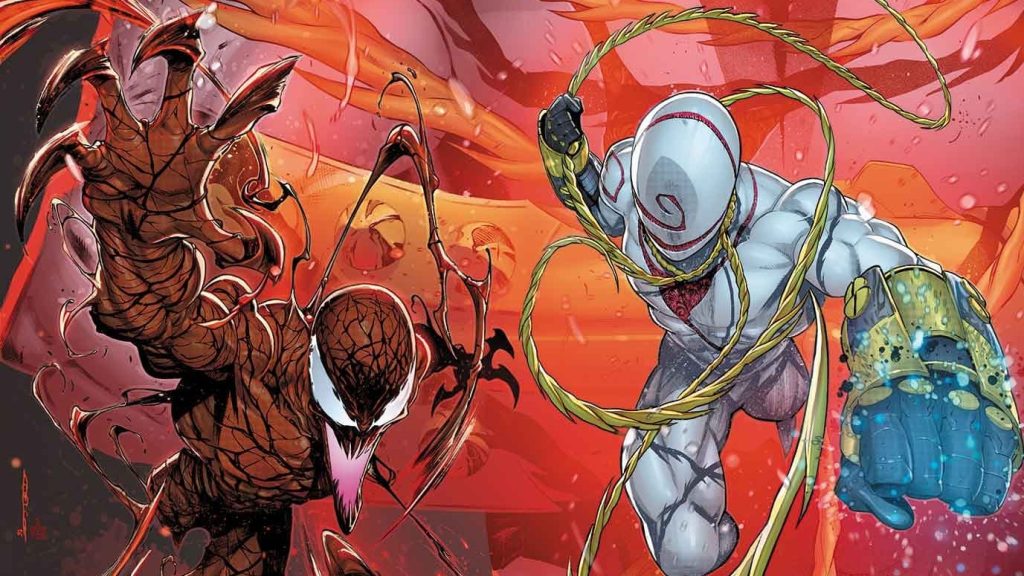In this era of constant digital connectivity, it’s become commonplace to witness online outrage. It seems like everywhere you look, someone is sharing their strong opinions on social media or engaging in heated discussions on forums. With the frequency of rebooted and retooled nostalgic content, fans can develop a sense of ownership and entitlement over these properties, leading to some of the most negative discourse on the internet.
In the early 2000s, when the superhero movie genre was still in its infancy, one contentious topic dominated online forums dedicated to comic book adaptations. Fans were deeply divided over a minor detail in Sam Raimi’s “Spider-Man” movie. Looking back, Raimi’s film was remarkably faithful to the source material, featuring Tobey Maguire as Peter Parker, an innocent teenager who gains unique abilities from a genetically-altered spider bite. However, the controversy stemmed from a key deviation from the comics that was revealed before the film’s release: unlike in the comics, where Peter invented his own mechanical web-shooters, Raimi’s Spider-Man produced webs directly from his wrists.
Although seemingly minor, the change made to Spider-Man’s web-shooters in Sam Raimi’s “Spider-Man” caused a major divide amongst fans in the early 2000s. While the film remained faithful to the source material in many ways, the decision to have Peter produce webs directly from his wrists instead of engineering his own mechanical web-shooters sparked a heated online debate. Some fans were outraged that such a core aspect of the character had been altered, while others saw it as a non-issue. The ensuing internet war exposed the ugliest elements of fandom, including gatekeeping and hateful vitriol. This trivial change in a superhero movie forever altered the way we discuss pop culture online.
James Cameron was the true inventor of Spider-Man’s organic web-shooters
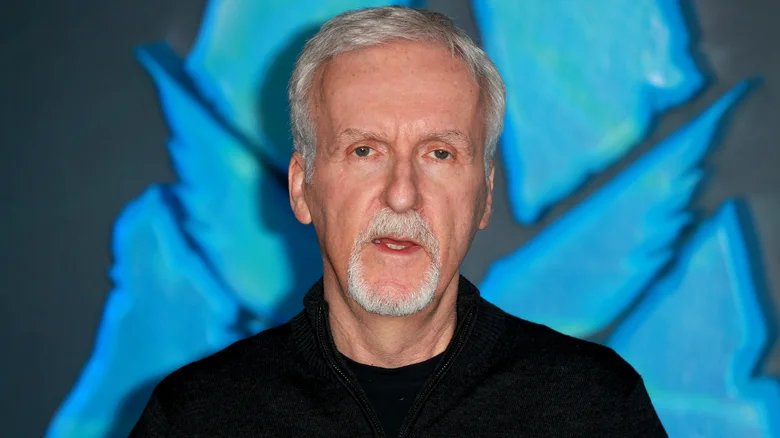
To be fair, blaming Sam Raimi for the organic web-shooters in “Spider-Man” is unjustified. The concept actually originated from James Cameron’s ill-fated Spider-Man film in the 90s.
Cameron, who had successfully directed “Titanic” and “Avatar,” altered Peter Parker’s biology in his unmade screenplay for the movie. Raimi’s decision to continue with organic web-shooters was likely motivated by his desire for realism. As Cameron explained to ScreenCrush in 2021, his aim was to create a Spider-Man film with the authenticity of “Terminator.” In this context, the idea of a teenager creating web-shooters in his room may have seemed implausible. As Cameron stated, “Going with the biological web shooters as being part of his biological adaptation to the radioactive spider bite made sense to me.”
Per Cameron, he even ran this by Stan Lee, who approved. Cameron then applied this same logic to every part of his Spider-Man treatment, explaining, “I wanted it to be: It’s New York. It’s now. A guy gets bitten by a spider. He turns into this kid with these powers and he has this fantasy of being Spider-Man, and he makes this suit and it’s terrible, and then he has to improve the suit, and his big problem is the damn suit. Things like that. I wanted to ground it in reality and ground it in universal human experience.”
Cameron’s Spider-Man treatment also utilized the webbing as an extended metaphor for puberty. He had included a scene in his script where Peter discovers his powers through a rather unpleasant “wet dream” sequence where he wakes up covered in webbing that he involuntarily created overnight. Although the scene was ultimately cut, the organic web-shooter change remained, and caused some fans to spiral into a sense of entitlement and throw tantrums.
When Raimi went organic, fans went ballistic
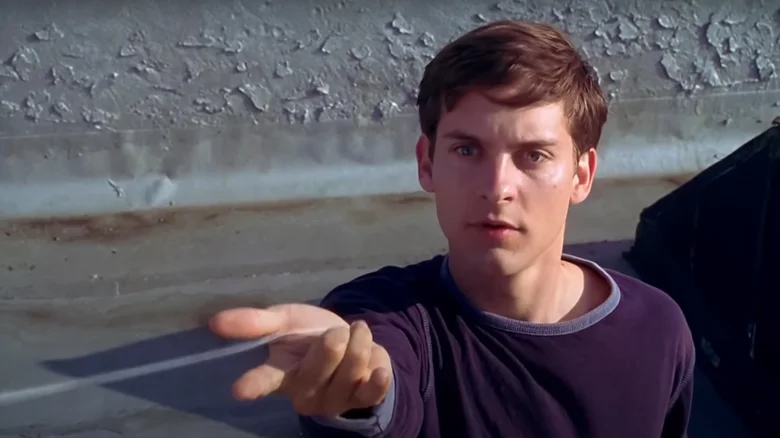
When Sam Raimi and screenwriter David Koepp tied the knot to work together, organic webbing just started making sense to them. As Raimi told Fangoria (per David Hughes’ “Comic Book Movies: Virgin Film”), “He sticks to walls. He can leap; why does he then have to invent a web fluid? Why not just mutate him far enough into a spider to produce webbing?”
Most moviegoers agreed and rolled with it. Others spoke out, out of which most notably was Joe O’Malley, who created the now-defunct No-Organic-Webshooters.com.
As O’Malley told Acid Logic, “It just sounds, from what Raimi’s said, that the organics (the flesh web shooters) will have Peter acting differently than he would in the comics. Like he’s kind of ashamed of his powers and becomes more withdrawn, which isn’t the case.”
The film itself, however, was not impacted by such concerns, as the organic web-shooters were simply used for comedic effect. Looking back, O’Malley’s reaction may have been somewhat exaggerated, but he maintained a respectful demeanor. Unfortunately, other corners of the internet were not as civil. Numerous anti-organic advocates resorted to bullying fellow fans who did not support their boycott of the film, labeling them as “fake fans” or even “Man-Spider fans.”
The debate regarding organic web-shooters exploded across the internet, sparking major fights on the Spider-Man Hype (now Superhero Hype) forums. Tribute threads recount how the anonymity of the internet fueled petty squabbles, insults, and elitism on the part of anti-organic users who felt entitled to belittle newcomers instead of welcoming their fellow Spidey enthusiasts. This childish behavior, most notably demonstrated by the infamous user Mr. Parker, spread beyond the Spider-Man fandom, becoming a permanent fixture of pop culture entertainment. Users like Mr. Parker felt their sense of ownership over the character was being invalidated, leading to pointless and often incoherent rants.
Spider-Man’s organic web shooters mattered…until they didn’t
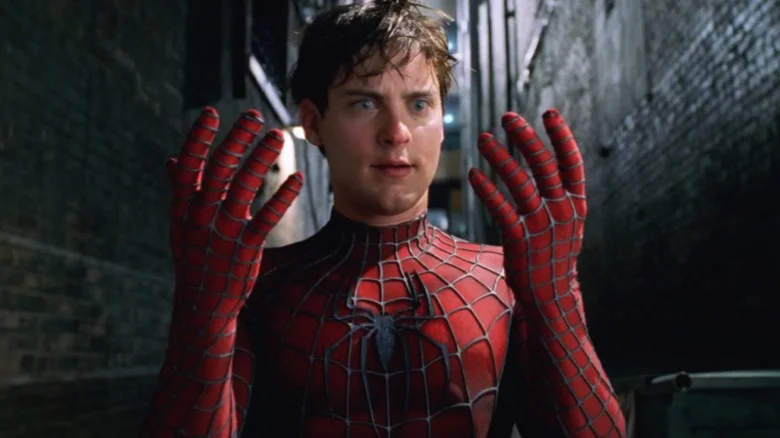
Although it’s natural for fans to passionately discuss pop culture, there is a problematic sense of ownership that often arises over nostalgic properties. The heated debates ultimately amounted to nothing but noise. Despite the backlash against organic web-shooters, “Spider-Man” still grossed an impressive $825,025,036 worldwide, and its sequel “Spider-Man 2” is regarded by many as one of the best superhero films ever made. Interestingly, organic webbing even made an appearance in the comics for a brief period, as reported by CBR, suggesting that Raimi’s change had no significant impact on Peter’s character.
Later the tide shifted with Marc Webb’s reinvention of the property in 2012’s “The Amazing Spider-Man.” The director told The Los Angeles Times (via MTV) in his full consciousness, “I had a meeting with Stan Lee and we talked about the web-shooters. The web-shooters were able to dramatize Peter’s intellect and I thought that was really cool… To me, it’s something I remember from when I was a kid and thinking ‘It would be cool if I could build those.”
At the time of the Marvel Cinematic Universe’s reboot of Spider-Man with Tom Holland and the introduction of mechanical web-shooters, the once-heated debate surrounding web-shooters had long since dissipated. It had become a non-issue that had faded into obscurity, primarily due to the emergence of newer, more contentious debates within the Spider-Man community and beyond.
Spider-Man’s web-shooters set the stage for numerous ugly debates that followed
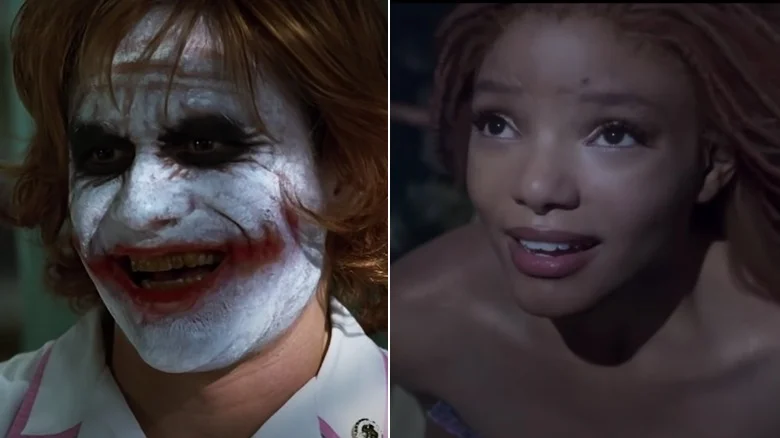
The most despicable aspect of the web-shooters debate was the toxic combination of uninhibited internet access and hatred mixed with ignorance. It’s not surprising that some individuals feel emboldened to spew hateful rhetoric while remaining anonymous, but it is still disheartening. One would hope that fandom communities, which are centered around properties we turn to for comfort and entertainment, would be a sanctuary of acceptance and inclusivity. However, the “organics suck” argument, which revolved around a minor deviation from the source material, gave way to anonymous users utilizing the internet as a platform to express racist, homophobic, and misogynistic views, all in the name of being “true” fans.
Another instance of this pattern occurred in the aftermath of the organic webbing debate, with the casting of Heath Ledger as the Joker in “The Dark Knight.” Many so-called Batman fans expressed hateful views toward Ledger before he even donned the iconic purple suit, due in large part to his Oscar-nominated role in “Brokeback Mountain,” which resulted in homophobic comments being directed at the actor. As Gawker reported, this toxic behavior from fans was reminiscent of the organic webbing debate, but ultimately irrelevant: when “The Dark Knight” was released, Ledger’s portrayal of the Joker was widely lauded as one of the best ever, and even earned him a posthumous Oscar.
Nowadays, the webbing debate is just a joke in Spider-Man: No Way Home
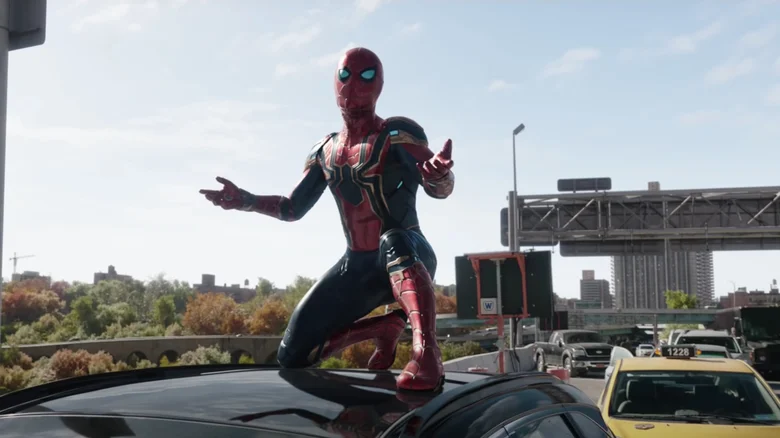
The recent blockbuster film “Spider-Man: No Way Home” featured a reunion of all three actors who have played the superhero over the years, almost two decades after the release of the first “Spider-Man” movie. Director Jon Watts and the screenwriters used this opportunity to make light of the infamous organic web-shooters debate, with the three Peter Parkers engaging in a humorous discussion about the topic. Holland and Garfield’s characters express surprise at Maguire’s unique organic web-shooters, creating a memorable moment in the film.
The humorous scene in “Spider-Man: No Way Home,” where the three Peter Parkers discuss the organic web-shooters debate, highlights the absurdity of the controversy, but also reminds us of a time when it was the biggest topic of discussion in the Marvel universe. Today, fans still engage in passionate debates about the quality and plot of superhero films, which can be constructive and enjoyable. However, toxic gatekeeping fans who belittle others should not be tolerated.
The success of “No Way Home” teaches us a valuable lesson. Instead of pitting Spider-Men against each other, the film brought them together, culminating in a heartwarming group hug. Fans of all three Spider-Men were united in their enjoyment of the film, celebrating the triumphant returns, surprise cameos, and tragic losses together. This response demonstrates the power of moviegoers to influence studio decisions, no matter how trivial or sticky the issue may seem. Ultimately, these stories should bring us together, not divide us over insignificant details.




